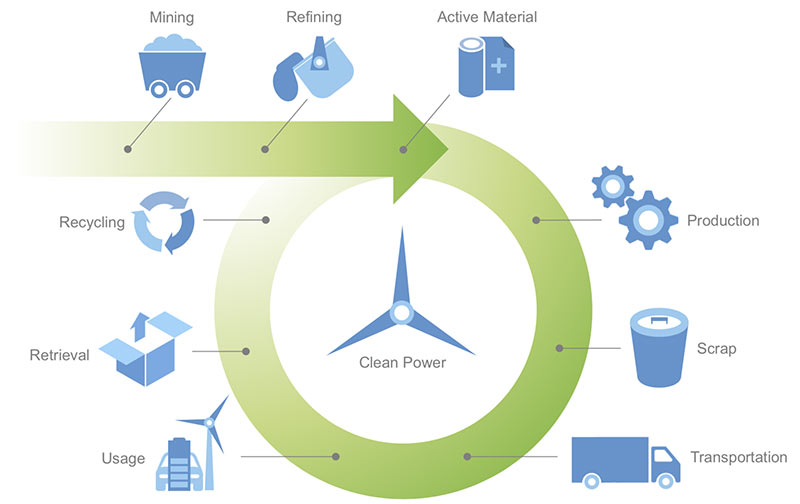Blockchain could give electric car batteries a second life

Pic: nespix / iStock / Getty Images Plus via Getty Images
Blockchain technology could give lithium-ion batteries a second life and ensure critical metals like cobalt, lithium and copper are not lost to landfill.
As battery production for electric vehicles (EV) ramps up, London-based tech developer Everledger wants to use blockchain to track lithium-ion batteries used in electric vehicles; from manufacturer, dealership, user, through to the scrapyard.
Blockchain is a technology used to secure online transactions including cryptocurrency payments but is increasingly used in other applications such as verifying supply chain data and digital contracts.
The diamond industry is already using Everledger – by the end of the year more than 10 per cent of global trade in certified diamonds will be tracked its blockchain platform, the company told BNEF.
Now it wants to do the same with EV batteries.
- Subscribe to our daily newsletter
- Bookmark this link forsmall cap news
- Join our small cap Facebook group
- Follow us on Facebook or Twitter
Bloomberg New Energy Finance (BNEF) projects EV-battery demand will rise 25-fold by 2030 — which eventually means there will be millions of second-life batteries that could be reused.
“Our aim is to track the life cycle of batteries, extend their lifetime and make sure that we don’t lose metals and minerals to landfill,” Everledger’s Lauren Roman told BNEF.
“If that battery can be refurbished to be used in an older vehicle or re-purposed for energy storage – those batteries can be sold for an average of $US5000 apiece.
“So rather than spending $US1000, you can make $US5000 – so that’s huge motivation.”
The blockchain would assign each battery a record of its history so that refurbishers and recyclers could easily determine whether it was suitable for end-of-life energy storage, the company said.
This will increase the proportion of batteries able to be refurbished, Ms Roman said.
Battery manufacturers could also help speed up the recycling process by placing disassembly instructions on the Everledger blockchain which could also help reduce the amount of battery components — such as aluminium, copper, lithium and cobalt – going to landfill.
An efficient recycling and refurbishment could also reduce pressure on battery manufacturers to source enough lithium and cobalt to meet rising battery demand.
Car makers Volkswagen and Audi, along with battery manufacturers Johnson Controls and Saft Batteries have committed to adopting Everledger blockchain to track EV batteries, the company said.

A number of other carmakers and battery manufacturers are already looking at ways to reuse EV batteries at the end of their natural life.
BMW, for example, is leading a consortium of companies – including Belgian recycling firm Umicore and Swedish battery manufacturer Northvolt – to create a ‘closed loop life cycle’ for electric vehicle batteries.
The partnership plans to repurpose EV battery cells, using them for energy storage before stripping them of raw materials that can be reused in other products.
UNLOCK INSIGHTS
Discover the untold stories of emerging ASX stocks.
Daily news and expert analysis, it's free to subscribe.
By proceeding, you confirm you understand that we handle personal information in accordance with our Privacy Policy.








